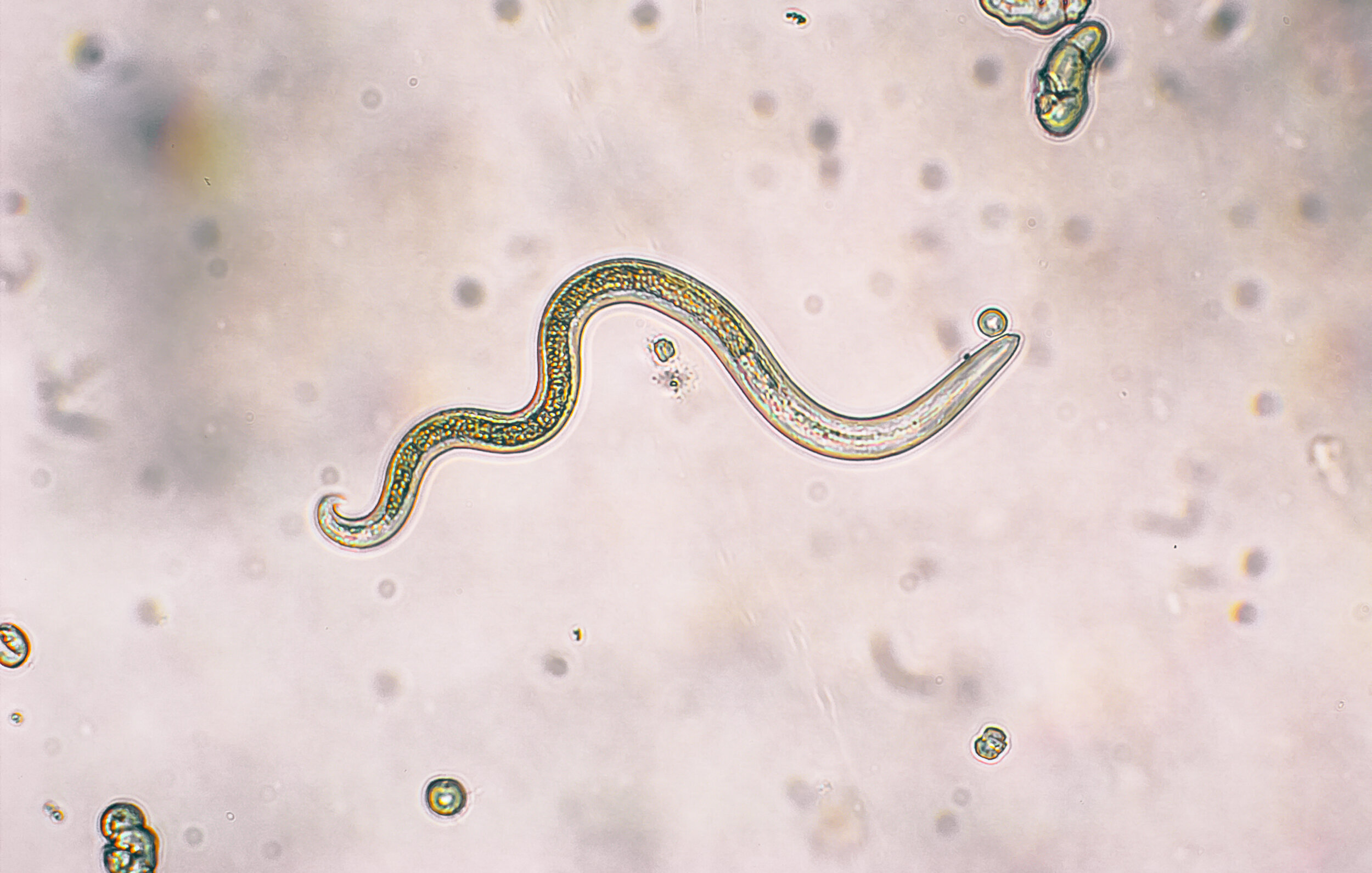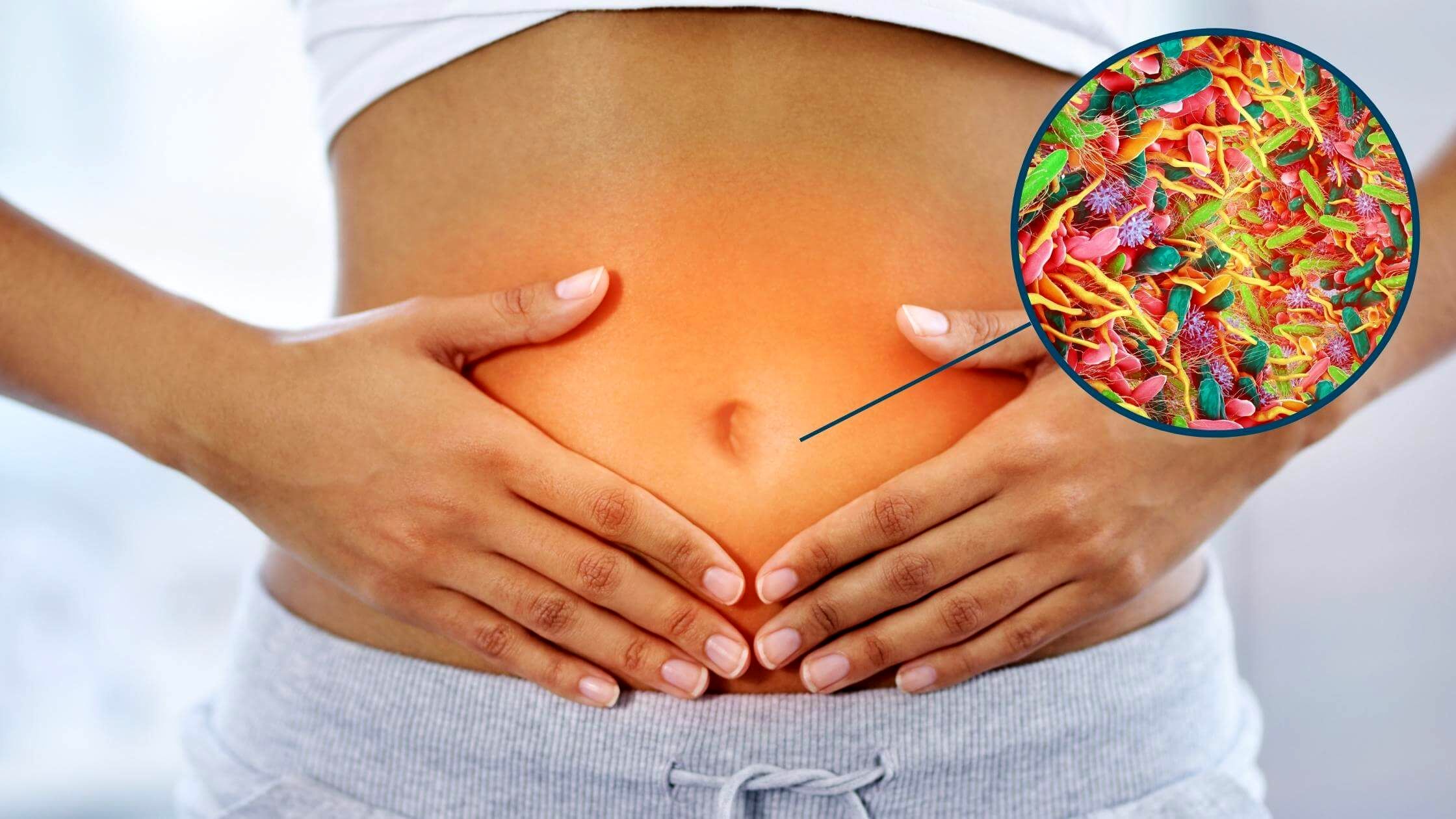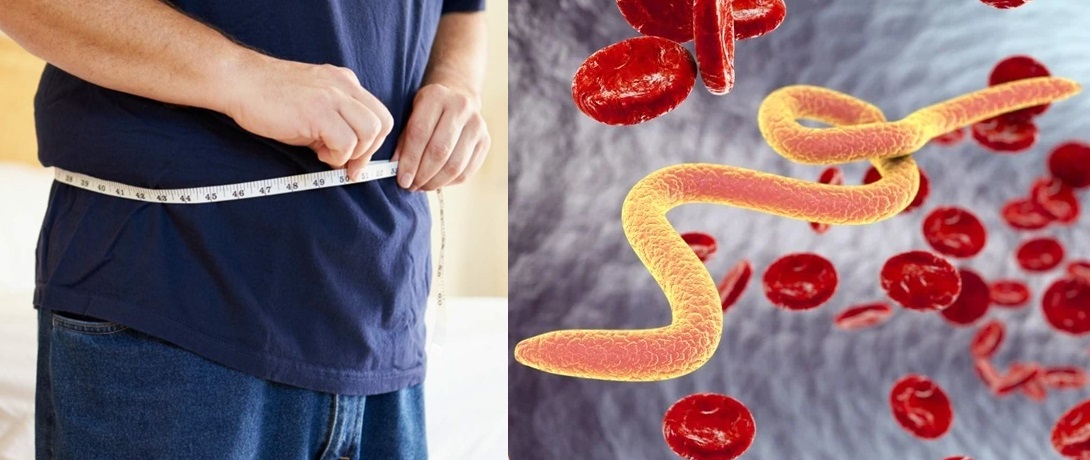When it comes to unexpected weight changes, most people consider diet and exercise first. However, there’s another factor that often goes unnoticed: parasites. These unwelcome guests can take up residence in our bodies and may lead to health problems, including fluctuations in weight. The impact of parasites on weight can vary; in some instances, they may cause weight gain by triggering cravings for sugar and carbohydrates or by inducing an inflammatory response that results in bloating and water retention.
Understanding the relationship between parasites and our health is crucial. Some parasites consume the nutrients from the food we eat, leaving us feeling constantly hungry, which can prevent weight loss or potentially contribute to weight gain. Others might interfere with our body’s ability to absorb nutrients properly, leading to an array of health issues beyond just weight changes. As parasites can affect many systems within the body, recognizing the signs of a parasitic infection is key to managing our wellbeing.
Reader's Roadmap
Key Takeaways
- Parasitic infections can impact weight and overall health.
- Identifying symptoms is important for managing health.
- Proper diagnosis and prevention are essential.
Understanding Parasites and Their Impact on Weight

When it comes to parasites, the relationship with weight can be complex. Some lead to weight loss, others to gain, depending on the type and impact on the host.
Different Types of Parasitic Infections
Parasites come in many forms, but for humans, common culprits include parasitic worms such as tapeworms and hookworms, and single-celled organisms like Giardia. Each type inhabits the host differently:
- Tapeworms: These settle in the intestines, often causing no symptoms at first.
- Hookworms: They attach to the intestinal walls, leading to nutritional deficiencies.
- Giardia: This infection disrupts the digestive system, causing diarrhea and discomfort.
These variations result in differing health effects for the host, including a range of digestive issues.
Parasites and Weight Gain Explained
One might wonder how these unwanted guests could cause weight gain. The mechanisms are indirect but significant. They can trigger:
- Inflammatory responses: This may cause water retention and bloating, misleadingly showing as weight gain on the scale.
- Digestive issues: Disrupted absorption processes alter how nutrients are handled, sometimes increasing appetite or altering metabolism.
Significant symptoms of parasitic infections, such as abdominal pain or changes in stool, should prompt seeking medical advice to address potential health implications, including those affecting weight.
Symptoms and Signs of Parasitic Infections

Spotting a parasitic infection can be tricky because the symptoms often mimic other health issues. From nagging digestive discomforts to shifts in mood, parasites can impact one’s wellbeing in various ways.
Common Physical Symptoms
Parasites can wreak havoc on one’s body, often causing a range of physical symptoms. Here’s how one might feel:
- Digestive Issues: They often find themselves battling with diarrhea, bloating, gas, and constipation.
- Nutritional Deficiencies: Due to parasites feeding on their host’s nutrients, anemia and unexplained weight changes can occur.
- Skin and Other Problems: Skin may become irritated, and dark circles under the eyes could appear. Lingering fatigue and inflammation are also common flags.
This list isn’t exhaustive, but it gives one a glimpse of the physical toll parasites can take.
Behavioral and Mental Health Impact
Parasites affect more than just the physical body. These unwelcome guests can also influence one’s behavioral and mental health:
- Sleep Disturbances: With itching or discomfort that peaks at night, insomnia can become a frequent visitor.
- Mood Alterations: Feelings of anxiety and depression may find a home where parasites linger, adding an invisible weight to one’s emotional well-being.
Remember, if someone is experiencing these symptoms, they’re not alone and it’s important to consult a healthcare provider for proper diagnosis and treatment.
Diagnosis and Treatment Options

Determining if parasites are the culprits of weight gain requires careful diagnosis. Once identified, there are multiple treatment paths to consider, ranging from medication to lifestyle adjustments.
Identifying Parasitic Infections
To pinpoint a parasitic infection, health professionals typically recommend stool tests and blood tests. Stool tests aim to find evidence of the parasite, such as eggs or larvae, within the feces. This can sometimes require multiple samples to increase accuracy. Blood tests, on the other hand, look for types of white blood cells that might indicate an infection or check for antibodies responding to specific parasites.
Conventional and Alternative Treatments
Once a parasitic infection is confirmed, the treatment usually involves medications designed to target the specific parasite. These medications can vary, but many work by either killing the parasite directly or inhibiting its growth. In conjunction with drug therapy, doctors might also recommend anti-inflammatory agents to ease symptoms.
For those seeking additional support, supplements may act as adjuncts to conventional therapy, bolstering overall health and supporting the immune system’s fight against the infection. However, it’s crucial to approach supplements with caution and under medical guidance as they’re not regulated with the same rigor as medications.
It’s essential patients understand their treatment options and engage with healthcare providers to find the most effective strategy for their situation.
Prevention Strategies and Healthy Practices
Fending off parasites isn’t just about taking medication after infection; it’s about making proactive choices in daily life. Through careful dietary adjustments and lifestyle habits, individuals can lower their risk of parasitic infections.
Dietary Adjustments for Prevention
When it comes to diet, the adage “you are what you eat” rings especially true in parasite prevention. Food and water safety are pivotal. They can:
- Cook meat to the recommended temperatures to kill parasites.
- Wash fruits and vegetables thoroughly under running water.
- Avoid unpasteurized dairy products and raw fish or shellfish.
During travel, especially in areas where sanitation is poor, they should:
- Opt for bottled or filtered water.
- Steer clear of raw or undercooked food.
Taking these steps can shield individuals from unwanted guests and contribute to overall well-being.
Lifestyle Changes and Hygiene
One’s daily habits play a significant role in fending off parasitic infections. Hygiene measures are the frontline defense against parasites:
- Frequent hand washing, especially before meals and after using the toilet.
- Use of a hand sanitizer containing at least 60% alcohol if soap and water aren’t available.
To further reinforce prevention:
- Keep living spaces clean and free from pests that could carry parasites.
- Educate oneself about the risks of parasites specific to their home region or travel destinations.
Incorporating these preventive measures into their routine creates a barrier against parasitic intruders and supports overall health.
Each step may seem small, but together they form a robust defense, keeping them and their loved ones healthier and happier.






